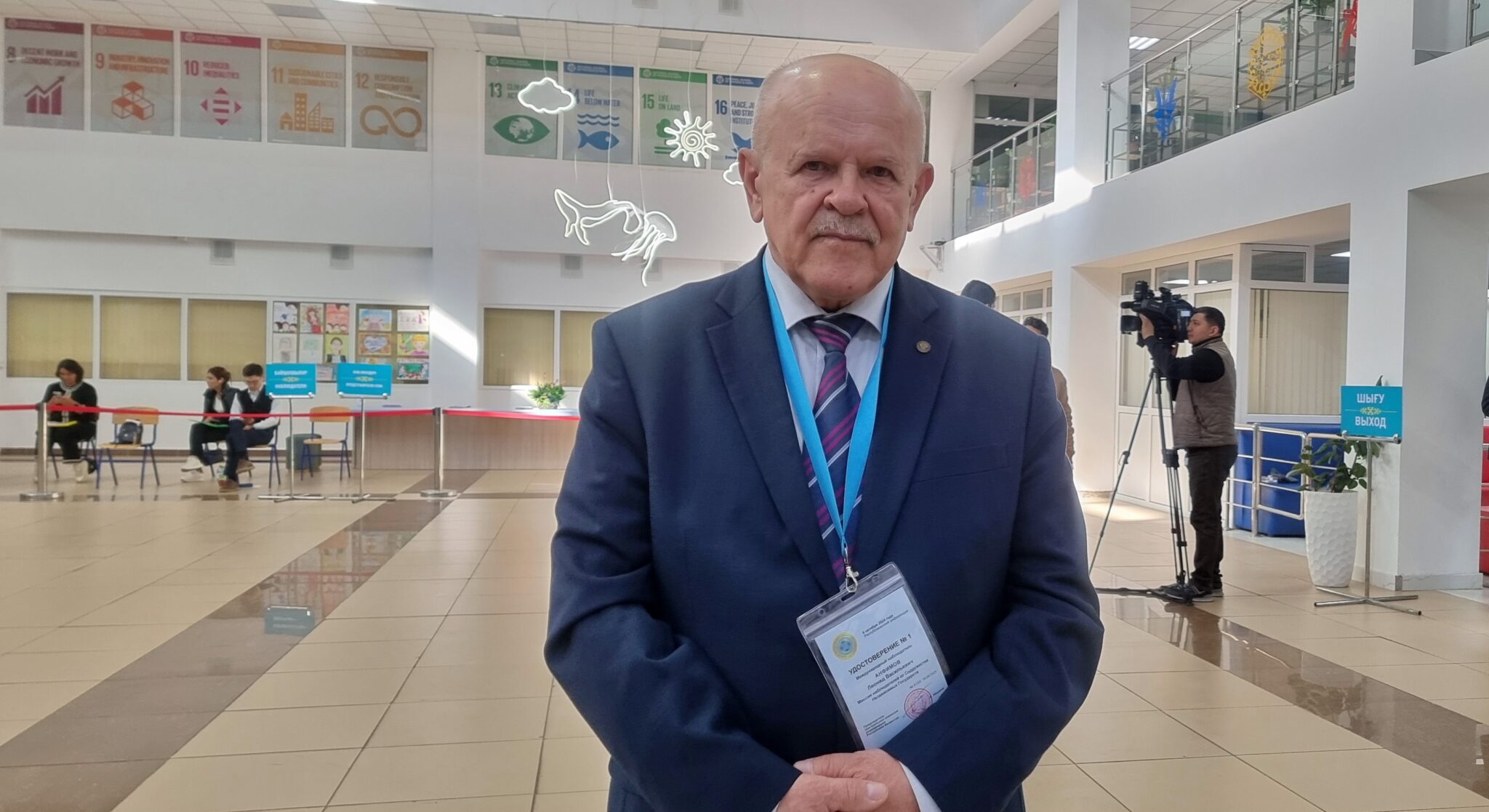ASTANA ( WNAM MONITORING): The national referendum on the construction of a nuclear power plant is being conducted in full compliance with Kazakhstan’s laws governing referendums and election campaigns, said Leonid Anfimov, the head of the Commonwealth of Independent States (CIS) observer mission on Oct. 6 at one of the city’s polling stations.
Anfimov noted that the CIS observer mission is monitoring both the preparation and conduct of the referendum, with 74 accredited representatives from Azerbaijan, Belarus, the Kyrgyz Republic, Russia, Tajikistan, Uzbekistan and staff from the CIS Executive Committee.
“Long-term observers from these countries began arriving the day before yesterday. They have met with the Central Election Commission, visited district and local referendum commissions, and observed a high level of readiness,” he said.
Anfimov highlighted the significant work done by the commission since the referendum’s announcement, including holding training sessions, seminars, equipping polling stations, and compiling voter lists.
“Everything is well-prepared for the referendum. Today, international observers are deployed across the country, and our team has managed to cover nine regions,” he said.
Kazakhstan’s Central Election Commission has accredited 177 observers from 30 countries and four international organizations, including the CIS Observer Mission, the Shanghai Cooperation Organization (SCO), the Organisation of Turkic States, and the Conference on Interaction and Confidence-Building Measures in Asia (CICA).
“I believe that together with bilateral and international organizations, we will ensure full observation coverage across Kazakhstan. So far, based on what we have seen and the conversations we have had with voters, internal observers, and referendum commission leaders, voting is proceeding strictly in accordance with Kazakhstan’s laws. There are no violations, and I do not expect any, based on our previous experiences observing electoral campaigns in Kazakhstan,” said Anfimov.
Addressing occasional issues of voters not finding their names on the lists, Anfimov remarked that such situations are rare.
“We recently observed a case where a woman was not listed but was added after verifying her registration at the designated polling station. I am confident that such cases will be resolved to the satisfaction of the voters,” he said.
Anfimov, who has previously observed presidential and parliamentary elections in Kazakhstan, reiterated that he has never encountered violations that contradicted the country’s laws.
He added that voter turnout remains high, based on his observations at the six polling stations he visited.
“At one of the smaller stations, turnout was particularly high. You could see the ballot boxes already half full. Typically, voter activity peaks between 11 a.m. and 1 p.m., and again from 3 p.m. until the stations close. Based on past experience, turnout is expected to range from 60% to 80%, and I anticipate a high level of participation due to the importance of this referendum,” said Anfimov.


